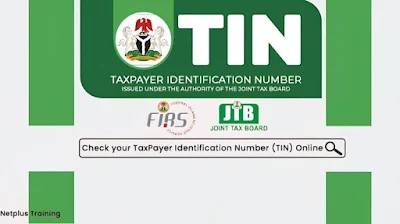The Federal Government has announced that beginning from January 1, 2026, every taxable Nigerian—individuals and corporate entities—must obtain a Taxpayer Identification Number (TIN) in line with the newly signed Nigeria Tax Administration Act, 2025.
The policy, which also covers non-residents supplying taxable goods and services in the country, was disclosed by the Executive Chairman of the Nigeria Revenue Service (NRS), Zacch Adedeji, during a press briefing in Abuja on Thursday.
Adedeji explained that President Bola Tinubu signed the tax reform bills into law in June 2025 as part of efforts to modernise the nation’s tax system, expand the revenue base and strengthen compliance.
“The TIN requirement is a cornerstone of our tax reform efforts to enhance compliance, streamline revenue collection, and foster a transparent fiscal environment,” Adedeji said.
Under Part II, Section 4 of the Act, registration for TIN is now compulsory for citizens, business owners, and government agencies at all levels.
The law further makes the TIN a prerequisite for operating bank accounts, engaging in insurance, stock exchange transactions, and entering into contracts with federal or state governments.
The reforms also empower tax authorities to issue, refuse, suspend, or deregister TINs based on compliance status. In cases of refusal, applicants must be notified within five working days, while businesses closing operations must notify tax authorities within 30 days.
The government, however, provided relief measures by exempting low-income earners and over 90 per cent of micro, small, and nano businesses from certain taxes.
In addition, Value Added Tax (VAT) will not apply to essential goods and services such as food, healthcare and transportation in order to cushion the impact on the cost of living.
Adedeji noted that the six-month preparatory window before implementation would be used for mass sensitisation and system alignment.
He assured that awareness campaigns and technical training would be rolled out nationwide to guarantee a smooth transition.
The development has, however, generated mixed reactions. While tax experts and policy advocates hail it as a move that will boost accountability and fiscal transparency, some small business owners expressed concern over what they described as the “bureaucratic bottlenecks” likely to accompany registration.
With the countdown to January 2026 underway, Nigerians across sectors are expected to begin early registration to avoid disruptions in financial transactions and access to government contracts.
Do you want to share a story with us? Do you want to advertise with us? Do you need publicity for a product, service, or event? Contact us on WhatsApp +2348183319097 Email: platformtimes@gmail.com
We are committed to impactful investigative journalism for human interest and social justice. Your donation will help us tell more stories. Kindly donate any amount HERE




